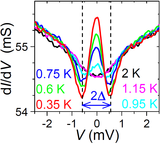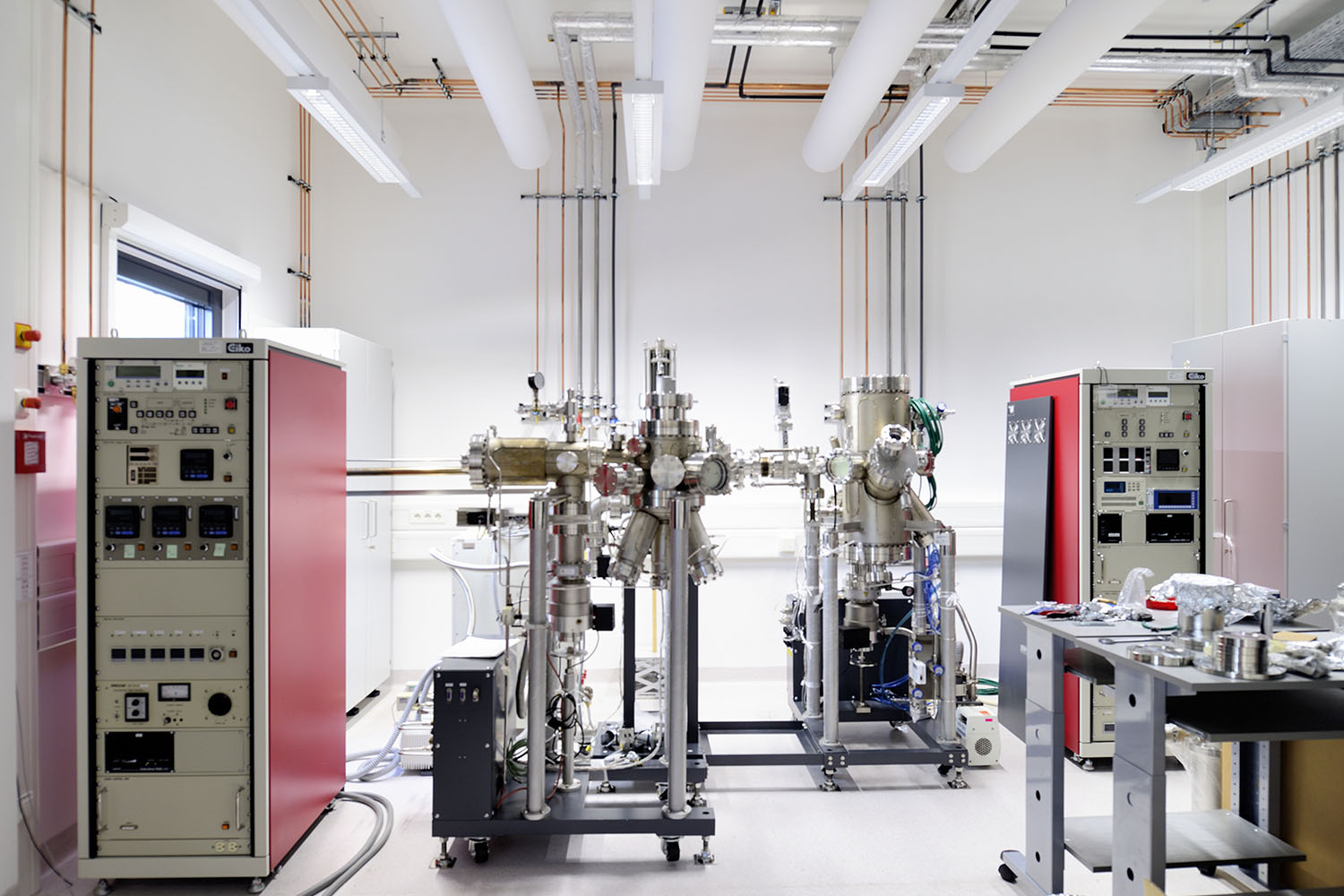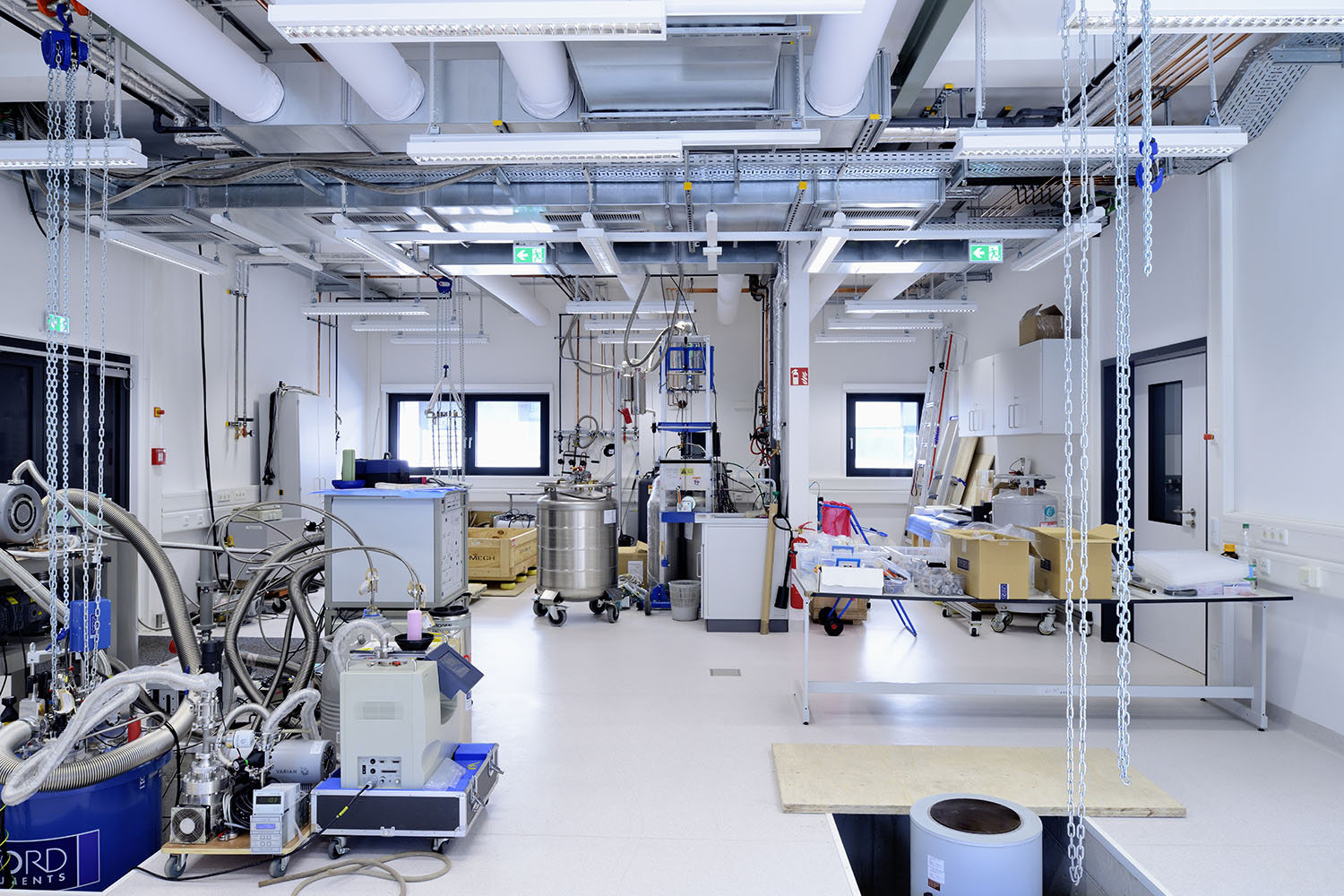Ando lab
The Ando Laboratory, nicknamed Topological Matter Laboratory Cologne, focuses on experimental studies of topological matter and their devices. Topological matter is a peculiar class of materials in which a nontrivial topology of the quantum-mechanical wavefunctions leads to unusual, and often useful, physical properties. We use nanofabrication and ultra-low-temperature techniques to explore the novel physics of topological matter, in particular topological superconductors hosting Majorana zero-modes. One of our main goals is to confirm the prediction that Majorana zero-modes obey non-Abelian statistics, which has never been observed in nature and would be the key for topological quantum computing. Our main experimental platform is hybrid nanodevices consisting of topological insulator and superconductor. Such devices present fascinating phenomena reflecting the interplay between unconventional superconductivity, mesoscopic physics, and topology. Our experiments are performed in a dedicated lab building, which houses a state-of-the-art clean room, as well as in the new wing of the main physics building.
Keywords to characterize our research:
- Topological insulator (TI)
- Quantum anomalous Hall insulator
- Hybrid devices
- Mesoscopic superconductivity
- Unconventional superconductivity
- Ultra-low-noise measurements in the mK region
- Superconducting qubits
- circuit-QED technique
- Bulk-insulating TI flakes and MBE thin films
What is Topological Insulator?

Topological insulators are an exotic class of materials where an insulating bulk state supports an intrinsically metallic surface state that is “topologically protected” by time reversal symmetry. In this topological surface state, right- and left-moving electrons carry opposite spins, which is the key property to realize topological superconductivity when such electrons are made to form Cooper pairs. Professor Ando is one of the pioneers of the research field of topological insulators, and his pedagogical review article (http://journals.jps.jp/doi/pdf/10.7566/JPSJ.82.102001) provides a good introduction to this field.
What is Topological Superconductor?

Even more exotic state of matter is topological superconductors. The nontrivial topology of their electronic wavefunctions gives rise to gapless boundary states, which sometimes present the properties of Majorana fermions conceived originally in high-energy physics. There are various ways to realize topological superconductivity. Professor Ando is also a pioneer of the research field of topological superconductors, and his pedagogical review article (https://iopscience.iop.org/article/10.1088/1361-6633/aa6ac7) provides a good introduction to this fascinating field.
Who should join?
We offer excellent research environment and interesting projects to talented young physicists (or physicists to be) at all levels: Bachelor students, Master students, PhD students, and Postdocs.
For possible thesis topics, please see here.
At the PhD and postdoc level, we are looking for talented individuals with a strong background in experimental condensed matter physics. More specifically, it is required that the applicant has experience/interest in one of the following areas: low-temperature physics, mesoscopic physics, superconductivity, nanodevice fabrications, or circuit-QED. It is advised NOT to apply to us if your main interest is quantum computing, since our research is still miles away from such an application.
If you are interested in joining us, please take a look at our lab manual to have a glimpse on the philosophy and practicalities of our lab. If it resonates with you, please inquire Professor Ando about possibilities.



